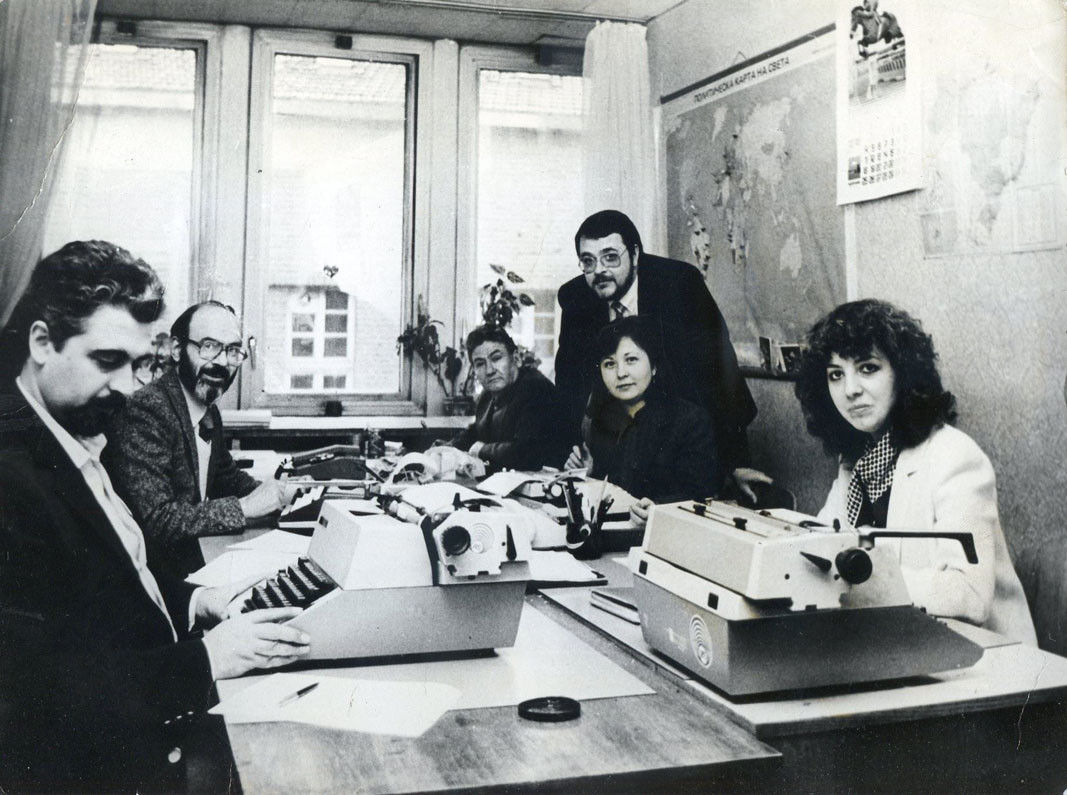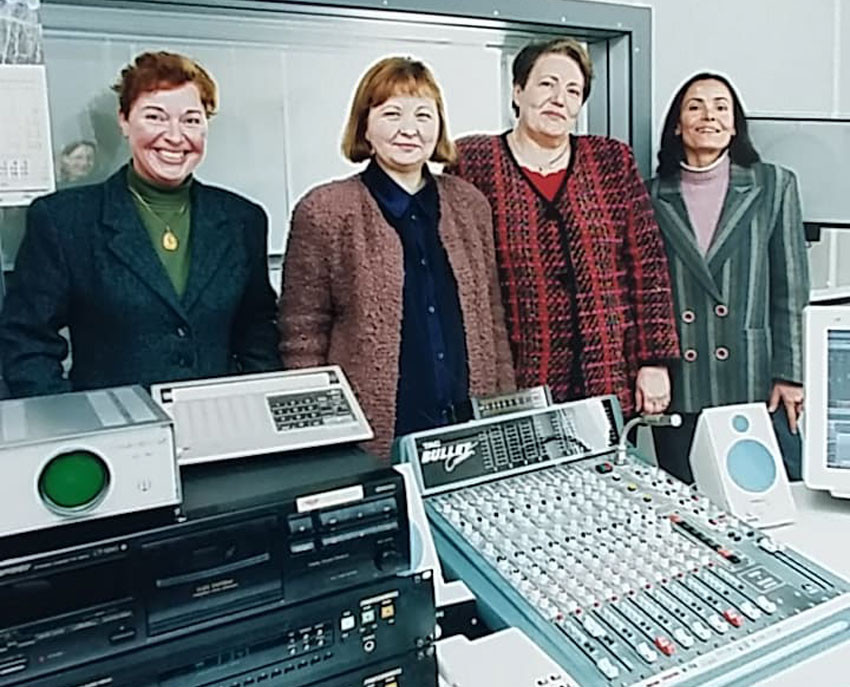Radio Bulgaria's foreign-language programmes are particularly important for Bulgarian communities around the world, as well as for the second and third generations of Bulgarians abroad who no longer speak Bulgarian but are looking for a connection with their roots, and, of course, for all foreigners who have an interest in the country. This is what Maya Daskalova, our co-worker of many years, first from the Portuguese section, and later from the Foreign Radio Department, is convinced of.
She joined Radio Bulgaria in 1975 and dedicated 35 years of her life to its cause. She holds a degree in Spanish Philology and a specialised course in Portuguese. And just as she graduated, the radio announced a job competition for people with Portuguese. "In the wake of the Carnation Revolution in Portugal, there was a decision to form a Portuguese editorial office," Maya recalls. She applied for the job and did brilliantly, together with her future colleague Emil Avramov." The Head of the Portuguese Editorial Office was Shela Avramova. At the beginning we were the three of us: Dimitar Ushev - deputy editor in charge, me and Emil Avramov," says Maya:
"We were understaffed but back then in Bulgaria there were many students from Brazil and Portugal, so we took advantage of their help. I was teamed up with a Brazilian, Silvio Alencastro Pregnolato, who was studying mathematics at Sofia University.

Our work was focused on South America, Brazil in particular, but we had many listeners in Spanish-speaking countries, as well. There was another team for Portugal and the former Portuguese colonies."
For any radio presenter, audience feedback is particularly valuable as it gives us insight into our work.
"In the beginning it was hard to break through, to be sought out, to be listened to. But pretty quickly letters started coming in, mostly from South America - amateur radio enthusiasts, reporting that they were able to receive our signal on the air. We had very nice correspondences with Brazilians and listeners from other Latin American countries," Maya recalls.
However, in 1994, due to lack of funding, the Portuguese and Arabic sections were disbanded. Then Angel Nedyalkov, the director of Radio Bulgaria at that time, came up with the idea to provide recorded programmes in Bulgarian and other languages to foreign radio stations. The connection with them should be made through the Bulgarian embassies. Maya Daskalova joined the newly created editorial department "Programmes for foreign radio stations", which was responsible for the production of recordings and the communication with the foreign broadcasters. Through the embassies, initially 17 radio stations from Latin America confirmed that they wished to receive Radio Bulgaria's programmes:
"They were free. The stations used to put a ready-made programme on the air, saying 'You are listening to a programme from Radio Bulgaria'. It contained a variety of topics and columns that we offered. The benefit for us was that they were giving us airtime, which cost money. So we managed to make quite a break in Latin America. From 1995 until I retired, for nearly 20 years, we had developed the contacts to such an extent that we reached out to Bulgarian Sunday schools in various countries."

Radio Bulgaria's Bulgarian-language output was particularly popular in Moldova and Ukraine, and its foreign-language output was popular in Latin America, Spain, Portugal and the USA. More than 90 radio stations used to broadcast it - both state and private. The recordings were sent first on tapes and then on CDs.
"We worked with total dedication. Our colleague Stella Melamed was in charge of the Bulgarian language programs for the Bulgarian schools abroad. There was a great demand for these programs in which we told about the Bulgarian literary classics, their works. Their words sounded in pure Bulgarian, so that the communities in Ukraine and Moldova could listen to them. We had even developed for the Bessarabian Bulgarians who were applying to our higher education institutions, the whole exam syllabus...
Here’s a curious story. On the occasion of my translation from Portuguese of a book by Jorge Kosikov, an account of Bessarabian emigration to Brazil, I was invited to a scientific conference in Chișinău.
We also made a tour of Bolgrad. There we visited the Bulgarian Cultural Centre and, when I met the director, I said: 'I am Maya Daskalova'. "Is that you, really?!", she exclaimed and opened a huge cabinet full of tapes of our programmes. I was very excited," says Maya Daskalova.
Through its activities Radio Bulgaria creates thousands of invisible but strong threads that connect Bulgaria to the whole world.
Editor: Darina Grigorova
English version: Elizabeth Radkova
Photos: private libraryProf. Evelina Kelbecheva will be a guest on November 18 at 6:30 p.m. at the Consulate General in New York to give a lecture and present the film Debris of One Afternoon, dedicated to the 100th anniversary of the attack against the church of "St...
Welcome to Bulgaria Today, the English-language podcast of Radio Bulgaria, on November 17 . In “Bulgaria Today” we bring you first the latest news from this country. Next, we tell you more about the Bulgarian..
Welcome to Bulgaria Today, the English-language podcast of Radio Bulgaria, on November 11 hosted by Rositsa Petkova. We start with a summary of the leading news stories from Bulgaria and the weather forecast for tomorrow. Next, we take you to the..
In “Bulgaria Today” on Thursday, November 20, we bring you, first, the latest news from this country. Next on the show: Folklore formation "Ludi-Mladi" is..
Welcome to Bulgaria Today, the English-language podcast of Radio Bulgaria, on November 21 hosted by Rositsa Petkova. We start with a summary of the..
Over the past two weeks, during the history classes of the Bulgarian Sunday School "Rodolyubie" in Norwich, England, first and second..

+359 2 9336 661
